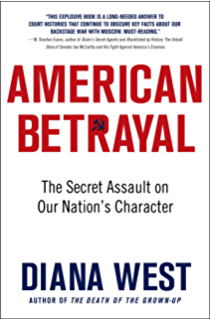 American
Betrayal review: How compromise with communism poisoned America
American
Betrayal review: How compromise with communism poisoned America | Home - Latest News | Introduction | Bayside Messages | Directives from Heaven | Testimonies | Veronica Lueken | Miraculous Photos | Videos |
 American
Betrayal review: How compromise with communism poisoned America
American
Betrayal review: How compromise with communism poisoned America
"Compromise will bring you nothing but despair and sorrow.
Compromise, My children, will enslave you. Recognize what is happening within
your country and many countries of your world." - Our Lady, February 10,
1977
I have just read one of the best books on communism:
American Betrayal: The Secret Assault on
Our Nation's Character.
In my mind, the author Diana West is up there with Jeff
Nyquist, right over the target when commenting on all things Russian and
communist. For anyone who wants details about communist influence and
manipulation within the
American
Betrayal is a very troubling book, filled with so much hard truth it
will make an American patriot ill to his/her stomach. It catalogs the complicity
of the
President Franklin Roosevelt, FDR, enabled the
After reading this book, it became even clearer to me that
without the message of
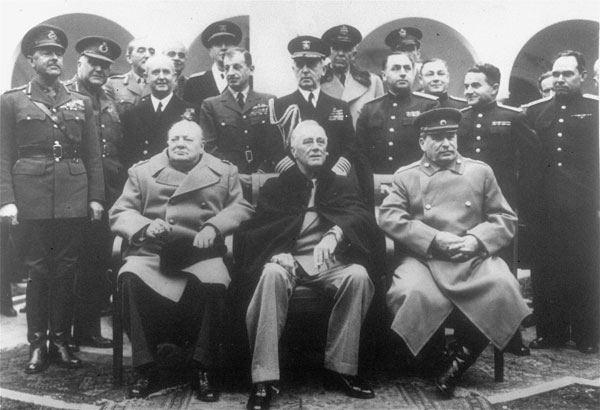 American Betrayal is a dense
book, 403 pages of small print with many, many references. It would take a
lifetime looking into all the sources cited in this book.
American Betrayal is a dense
book, 403 pages of small print with many, many references. It would take a
lifetime looking into all the sources cited in this book.
So thanks to Diana West, for her meticulous research
showing what a great threat FDR and his policy of appeasement was to our
republic, and a turning point for the worse in our national character.
"When 'everyone' agrees there is nothing there, what is
there becomes invisible by consensus, and the Big Lie lives." (p. 8) The Big Lie
lives on, in the West's and the Catholic hierarchy's false estimation of
Some of the most troubling themes, catalogued in this
marvelous book, follow.
Harry
The Lend-Lease bill passed on March 11, 1941, a program to
aid Allies in the war against
A large part of the Lend-Lease picture is filled by Harry
Hopkins, called co-president, one-man cabinet, Rasputin of the White House, and
person in charge of Lend Lease. According to the September 22, 1941 issue of
Life magazine:
"As head of the Lend-Lease program, his control of the
destiny of empire is second only to Mr. Roosevelt's. As the President's familiar
and constant traveling companion, he is a perfect mirror of executive policy who
can make or break a plan or its proponent with as little effort as a grunt or a
frown. In the kind of personalized one-man government that war has made of the
administration of Franklin D. Roosevelt, that man has the greatest influence who
has easiest access to the Chief of State's ear. Harry Hopkins sees the President
early, late and frequently in between." (p. 130)
In distributing Lend Lease aid, Harry Hopkins and President
Roosevelt gave Stalin preferential treatment, even over the needs of our troops
and other Allies: "… the record shows that whatever
Roosevelt's naïve assessment of Stalin and his massive Lend
Lease aid to Russia would soon come back to haunt the world: "Goodness gracious,
call off the agreement with these monsters to whom we have just pledged $1
billion and enough Dodge trucks to occupy eastern and central Europe." (p. 238)
Russian aid took
precedence over
One of the most startling historical gems Diana West dug up
in her research was what she called the "Russia First" policy, which betrayed
our American soldiers and Filipino allies:
"All Hopkins and Marshall could think of, talk about, was a
'second front' in northern
Yet General MacArthur was promised help from President
Roosevelt. In "a late January/early-February 1942 cable of particularly
outrageous lies from
Major George Racey Jordan was a supervisory "expiditer" of
Soviet Lend-Lease aid stationed in
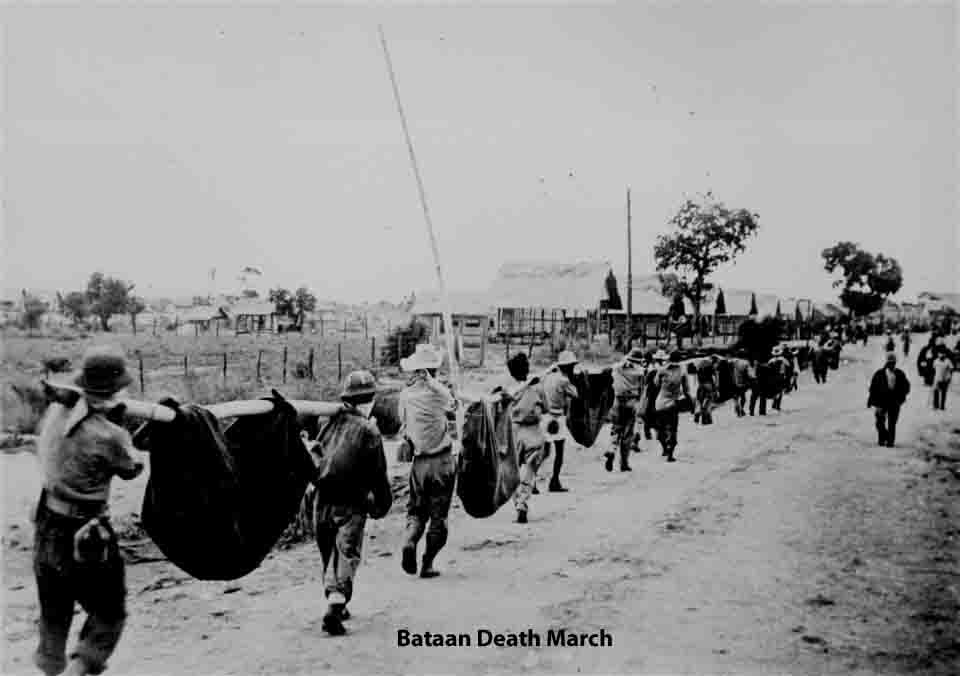 "The
President has directed that 'airplanes be delivered in accordance with protocol
schedules by the most expeditious means.' To implement these directives, the
modification, equipment and movement of
Russian planes have been given first priority, even over planes for the
"The
President has directed that 'airplanes be delivered in accordance with protocol
schedules by the most expeditious means.' To implement these directives, the
modification, equipment and movement of
Russian planes have been given first priority, even over planes for the
And what are some of the results of this policy? Let's look
at what was happening to our American troops, fighting in the
General MacArthur's escape through the Japanese blockade is
portrayed at the end of the classic World War II movie,
They Were Expendable, starring John Wayne.
On April 9, 1942, the
Harry Hopkins and
nuclear secrets
Before we move on to Major Jordan's big discovery, we need
to supply some background on Harry Hopkins, who had "extremely intimate
awareness of and central involvement in setting up and monitoring what became
known as the Manhattan Project." Winston Churchill would conduct "his
correspondence on the atomic project with
The Soviet Union plotted to steal
Thankfully, Major Jordan kept copious notes of the
suspicious goings-on in
Then Major Jordan started "spot-checking the contents of
those black suitcases, which at a certain point, started shipping through the
airfield, fifty at a time, and under armed Russian guard. The mystery of these
suitcases particularly troubled
One midwinter night
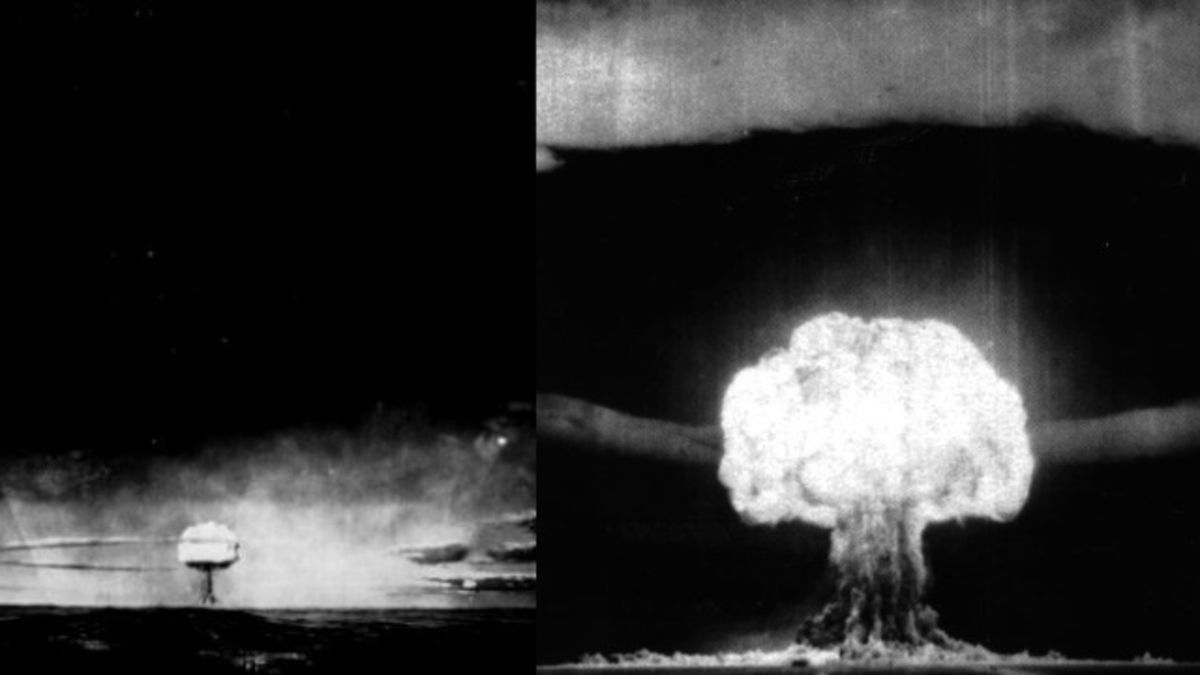 Diana West describes, "What a memorandum it was. It listed
the road maps he found pinpointing American industrial sites ('Westinghouse,'
'Blaw-Knox'). Maps of the
Diana West describes, "What a memorandum it was. It listed
the road maps he found pinpointing American industrial sites ('Westinghouse,'
'Blaw-Knox'). Maps of the
Jordan didn't know fully at the time what was going on, but
"He did, however, have that gut-checking hunch that these documents, so many of
them obviously classified (including, for example, confidential reports to the
secretary of state originating in the U.S. Embassy in Moscow), shouldn't be
heading out of the country to a foreign power.
Diana West questions whether Lend-Lease had become a rogue
operation under Harry Hopkins: "was the Lend-Lease atomic flow, indeed, all
right, kosher, and aboveboard from the point of view and national interest of
Uncle Sam? Or was Lend-Lease covering up a rogue operation? Was Lend-Lease, as
run out of the White House by the president's top adviser Harry Hopkins, itself
a rogue operation?" (p. 126)
More evidence backs up Major Jordan's credibility and his
claims. "In his 1995 book Dark Sun: The
Making of the Hydrogen Bomb, Pulitzer Prize-winning author Richard Rhodes
mines
Major Jordan's 1949-50 testimony before Congress would
include descriptions of the black suitcases and a note Jordan found on White House
stationery, with the initials "H.H.", affixed to two documents: (1) a thick map
"as wide as the span of my extended arm" with a legend Jordan recorded as "Oak
Ridge Manhattan Engineering District," the top secret headquarters of the U.S.
atomic project. (2) The second document was a carbon copy of a report with those
curious words and phrases, "cyclotron," "deuteron," "energy produced by
fission", and "walls five feet thick" (p. 139).
Major Jordan also told Congress of a personal phone call he
had received from Harry Hopkins in April 1943.
It ended up these chemicals were uranium, coming from a
mine in
"This uranium shipment--news of which Jordan first brought
to the public in December 1949 following that first, successful, and shocking
Soviet atomic test--was confirmed to have been pushed through to the USSR by
federal agencies led by Lend-Lease…. This shipment, which
Oleg Gordievsky, a former KGB colonel and KGB London chief
reported in 1990 that as a young KGB agent he had heard Iskhak Akhmerov (a
Soviet spymaster) devote most of a lecture at KGB headquarters "to the man whom,
he alleged, was the most important of all Soviet wartime agents in the
As Diana West put it, Harry Hopkins "was said, on credible
authority, to have been a Kremlin agent, the supreme Kremlin agent in the
The implications are truly astounding. Soviet agent Harry
Hopkins was able to deflect the course of the
"A Soviet spy and American traitor advised the president
and himself made policy before and during World War II. This is a thesis that
demands further confrontation even if it might shift the balance of our historic
understanding." (p. 148)
Site of D-day
invasion - Stalin's choice vs. Churchill's / Eisenhower's choice
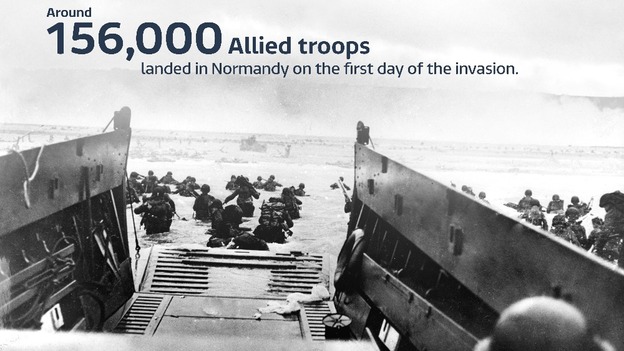 President
Franklin Roosevelt's naïve chumminess with Stalin blinded him to the fact that
he was being used by Stalin. In order to stay on Stalin's good side, President
Roosevelt appears to have bent himself into a pretzel on many decisions, one
being the site of the D-Day invasion. Although both Winston Churchill, General
Eisenhower, and other military commanders on the ground advocated
President
Franklin Roosevelt's naïve chumminess with Stalin blinded him to the fact that
he was being used by Stalin. In order to stay on Stalin's good side, President
Roosevelt appears to have bent himself into a pretzel on many decisions, one
being the site of the D-Day invasion. Although both Winston Churchill, General
Eisenhower, and other military commanders on the ground advocated
Diana West writes:
"the historical record shows that Stalin was, arguably,
the primary booster of the invasion of
northern
General Eisenhower, along with Churchill, considered
"More significantly, the top
Yet the Cairo Conference records, and General Eisenhower's
statement about
"Of course, no one would be able to see that in black and
white until 1961, when the State Department finally published the 1943 Cairo
Conference records. Still, you didn't need to be a military genius to know what
would happen if the Allies abandoned southern
And so Stalin's evil plans against
"Reinvading
Europe through both northern France (OVERLORD) and, often forgotten, southern
France (ANVIL), rather than pressing on from the already established Allied
front and bases in Italy, and expanding operations from the Adriatic and Aegean
Seas into south central Europe, as Churchill repeatedly and quite desperately
proposed, left Eastern and
Pro-Soviet
propaganda
There were so many communist sympathizers and outright
agents in the
In
"Stanislaw Mikolajczyk, prime minister of the Polish
government in exile, felt compelled to lodge a complaint with the State
Department about American broadcasts into wartime Poland by the Red-riddled OWI,
because, he wrote, the U.S. government's 'pro-Soviet propaganda duplicated the
broadcasts sent from Moscow.'" (p. 292)
"Operation
Keelhaul"
So many of the betrayals during World War II can be traced
to the
Many Russians were fleeing their communist dictatorship;
the
General A. Deniken, the former commanding general of the
White Russian armies (1917-20) wrote a letter on January 31, 1946 in which he
explained why his countrymen "prefer death to repatriation to the Soviets." (p.
234) Particularly infamous was the betrayal of the Vlosov soldiers who
surrendered to the British and American soldiers "after they had received solemn
promises that they would not be returned to the Soviets against their will."
They were returned, against their will. (p. 235) These soldiers "were condemned
by the West for one reason only: that we were allied with Stalin's terror
regime." (p. 236)
"Aiding and
abetting the rape of a large part of
Anyone with eyes to see could understand the plans that
Stalin had against
"On August 11, 1943, John C. Wiley, a Soviet expert in the
OSS, wrote a lengthy letter to FDR, a Bullitt-like blast, warning the president
of Soviet designs on Eastern and Central Europe and explaining how not to be
'maneuvered into aiding and abetting the rape of a large part of Europe.'" (p.
210)
In 1952 George H. Earle testified before Congress,
reporting a conversation he had had with Joe Levy of
The New York Times. Earle had
collected a dossier of evidence gathered in
"Pink" meaning pro-communist and pro-Soviet.
Half a million
U.S. trucks and jeeps, to Stalin
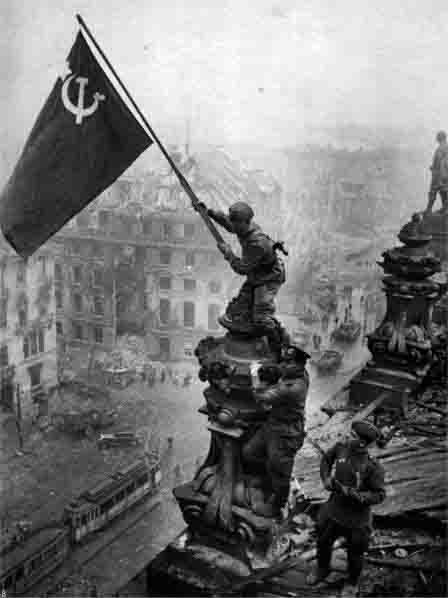 In
April 1945 American forces were approaching
In
April 1945 American forces were approaching
Had the American forces been allowed to continue, it is
almost certain that eastern
But fall they did. Again, will a lot of help from
Lend-Lease:
"American Lend-Lease didn’t just keep the Soviet police
state humming along internally, either. As Nikita Khrushchev would say to
Life magazine in 1970 of those half a
million trucks and jeeps, 'Just imagine how we would have advanced from
Stalingrad to
The horrendous complicity with communist
Diana West profoundly reflects:
"This leaves it to us to reexamine the old lore with eyes
open to the long hidden implications of Communist penetration at every echelon
of the
So great was the attempt to maintain "friendly relations"
with the Soviets that American soldiers were censored, by the American
government. On March 26, 1945, General Marshall "issued guidelines on the
censorship of American ex-prisoners heading for home from the Soviet zone… As
the order tersely puts it, 'Censor all
stories, delete criticism Russian treatment.'" (p. 322)
A dirty secret of World War II is that
"A signal example of this came one week before the European
war's end when military censors prevented the Associated Press's Wes Gallagher
from reporting that American and British armies, sweeping across northern Europe
into Germany, 'could have easily taken Berlin before the Russians did so in May
1945 but for some reason were not allowed to do so.' (The same thing went for
Stalin, the consistent liar that he was, had insisted to
President Roosevelt that there were only seventeen American POWs in the Red
zone, and that they were safely en route to the port city of
A few years later, on May 19, 1945, Supreme Commander
Eisenhower himself signed a cable stating, "Number of US prisoners estimated in
Russian control 25,000." (p. 326)
Three days later, on May 22, 1945, ex-POW Major Van Vliet
made it to the Pentagon to expose Soviet guilt for the Katyn Forest Massacre.
"His efforts … turned out to be only for the dead file." (p. 327)
President Roosevelt continued to reject reports that the
Russians, not the Germans, were responsible for the Katyn Forest Massacre.
"Just as Major Van Vliet in
General Albert Kenner likewise confirmed that U.S. POWs in
communist-controlled territories numbered in the thousands:
"There is the May 30, 1945, Kenner Memorandum, named for
Gen. Albert Kenner, Eisenhower's surgeon general at SHAEF headquarters. This
memo states that twenty thousand Americans remained under Red Army control. It
also states that twenty-thousand British remained under Red Army control as
well, not to mention literally hundreds of thousands of other nationals. There
is the May 31, 1945 top secret letter from General Deane to a Russian general,
General Slavin, assistant chief of the Red Army in Moscow, the staff officer
Deane had been dealing with on and off for almost a year by this time. This
document states that the number of American prisoners believed to be in Russian
custody is 15,587." (p. 329)
Stalin was lying about the number of American POWs, and
many
"Americans were never supposed to know. This darkest secret
didn't enter history books, our movies, our lore. It remained another unseen
void, another intensification of the black hole of antiknowledge…. Uncle Sam has
been part of, or was made into part of, the Russian Bear's cover up for too
long, all to maintain the fiction, the lie, of relations with the
Diana West rejects the historical narrative that the
"Did these appalling acts of censorship serve the 'greater
good'--namely, the wartime alliance with
For the sake of our republic, we as American citizens must
recognize the great evil that the
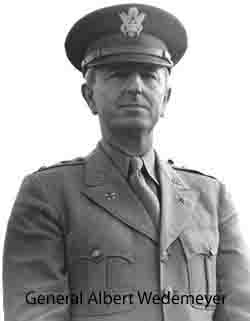 "We
must see into the darkest craters in our past and zero in on the shape-shifting
extent to which Stalin, through his infiltration and occupation of our power
centers by a well-placed army of agents, fellow travelers, and dupes, prodded
and coaxed along Allied strategy throughout World War II to further the
entrenchment and expansion of the evil empire." (p. 250)
"We
must see into the darkest craters in our past and zero in on the shape-shifting
extent to which Stalin, through his infiltration and occupation of our power
centers by a well-placed army of agents, fellow travelers, and dupes, prodded
and coaxed along Allied strategy throughout World War II to further the
entrenchment and expansion of the evil empire." (p. 250)
Diana West quotes Hanson Baldwin, on the greatest mistake
of World War II:
"Remember Hanson Baldwin's Numero Uno 'great mistake of the
war': the belief 'that the Politburo had
abandoned … its policy of world Communist revolution and was honestly interested
in the maintenance of friendly relations with capitalist governments." (p.
291)
General Albert Wedemeyer goes even further:
"[General Albert] Wedemeyer explains,
'We poisoned ourselves with our own
propaganda and let the Communist serpent we took to our bosom envenom our minds
and distort our ideals." (p. 291)
As I finished
American Betrayal,
I clearly saw how seeking "good relations with the Soviets" at all costs had
poisoned our national character and why Diana West had called 1933 the death of
American leaders, without a roadmap to the future on how to
successfully deal with communist
The
Had the Pope and Catholic bishops consecrated
"They did not want to heed My request.
Like the King of
More than 89 years later (as of 2018), this command of God remains unfulfilled. That is how little obedience remains within the Catholic hierarchy, and this sinful disobedience to the holy will of God is at the root of all problems in the Catholic Church.
If the death of
Were these three great acts of betrayal and disobedience to
the holy will of God the floodgates that opened the great apostasy upon the
Church and the world?
In both cases (the
Instead, the Catholic Church and the
In failing to fight against the evil of communism, both the
U.S. and the Catholic Church have been disfigured, weakened, and compromised by
this act of cowardice. Instead of being warriors of God and of truth, we became
negotiators, apologists, cowards, slaves.
Both the
For the Catholic Church's part, the Vatican-Moscow Treaty
must be rescinded;
Russia must
be consecrated by the Pope and all the Catholic bishops.
By obeying God's peace plan given at Fatima, Our Lady will
obtain for the world the conversion of
VIDEO:
Communist subversion of
"Lenin and Stalin are not with Us. They were cast off to meet with their god, the prince of darkness, satan. It behooves Me to say, and it tears My heart in anguish, that they did not seek to be saved." - Our Lady, June 18, 1992
"Russia has but one plan: to capture the whole world. They will do this without heart or conscience. Therefore, know that I ask you again, as your God in the Trinity, I ask you to contact the Holy Father—through pen or prose, or the written script—to contact the Holy Father and beg him to consecrate Russia to the Immaculate Heart of My Mother. This has not been done, My children." - Jesus, May 17, 1986
![]()
D103
-
Communism
![]() PDF
PDF
![]() PDF
PDF
![]() PDF
PDF
![]() PDF
PDF
Is Russia converted, and is there world peace?
http://www.nuestrasenoradelasrosas.org/news1/IsRussiaConverted.html
Moses at the Red Sea and the consecration of
Russia
http://www.nuestrasenoradelasrosas.org/news1/MosesAtTheRedSea.html
VIDEO: Communist subversion in America
https://www.youtube.com/watch?v=N5RLR77bpr4
Why Academics Hate
Diana West, Breitbart, September 28, 2013
https://www.breitbart.com/big-government/2013/09/28/its-worse-than-a-conspiracy-it%20-s-consensus/
Sister
Lucy has repeatedly stated that Russia must be consecrated by name
The “conversion of
Russia”: what does it really mean
Cardinal Burke: Russia was not consecrated ‘in the manner requested by Our
Lady’, LifeSiteNews, October 9, 2017
Interview with Rome chief exorcist Fr. Gabriele Amorth says consecration of
Russia not done, LifeSiteNews, December 30, 2015
VIDEO: Fr. Gabriel
Amorth on the consecration of Russia
The Cold War Never Ended, Jeff Nyquist
Russia's undeniable war preparations, Jeff Nyquist
Revised:
July 14, 2018